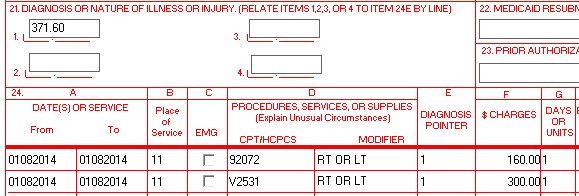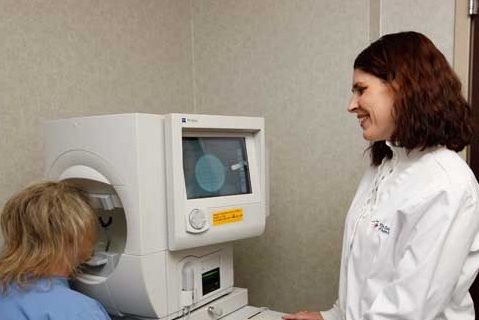What Is Optometric Billing?
- By Andrew Roy
- •
- 26 Jan, 2016
- •
Part 1

There are allot of companies out there that provide medical billing services. Many of these companies are large, some are small. Some are handled completely in India or the Phililpines while others handle their work right here in the U.S. Some are corporations and others are simply "Mom and Pop" business'; people that work right from home. Whatever the case may be, these entities all have one thing in common; THEY PROVIDE BILLING SERVICES TO ALL TYPES OF PRACTITIONERS.
Quite simply,OPTOMETRIC BILLING is, medical billing for optometrists. This is an important differentiation that any optometrist should take the time to sit and ponder when trying to decide the best way billing insurance and patients.
There are not currently many differentiated sects in the billing world. Most medical billers provide services to all types of practitioners and the most common specialized billers are only specialized because they are going after hopsitals (hospital billing) or dental practices (dental billing). Consequently, many optometrists that begin the search for a billing agent find themselves confronted with an entity that handles many specialties, and though this may work well for an internal practitioner or a cardiologist this does not translate into a good experience for an optometrist.
Until the early 90's optometrists were not recognized in the insurance world as "medical providers". That meant that optometrists practiced under a limited set of codes and were generally limited to billing a patient for services expecting a payment in the form of cash or relying on routine vision insurances (VSP, Eyemed, etc) to fill the gap. This was not and continues to not be a reliable method of building a large and successful practice, especially since the average routine vision insurance reimburses only about $45.00 for a standard eye exam including refraction. This changed ,however, in the early 90's when optometrists were officially allowed to begin billing medical insurance for "medical procedures" some of which include eye exams when coded properly.
This change not only opened up new streams of potential revenue for optometrists but it also created a headache for medical billers. Many insurance companies, such as BCBS, accept "s"level codes as well as standard medical CPT codes such as "92004" and "92015" or "92225"; codes that were previously only reserved for "Medical Practitioners" such as opthalmologists. Optometrists can also bill HCPCS codes which in effect creates 3 levels of potential or necessary codes billing staff need be aware and proficient of in order to correctly process an insurance claim.
As a result of these conditions, a biller working for an optometrist needs to be familiar with this in order to not only properly bill an insurance company but to help the optometrist provide the highest level of service possible to his/her patients. Unfortunately, most medical billers do not possess this knowledge. They apply standard "Medical Billing" rules to their optometric clientele and consequently can cause an optometrist to leave lots of money on the table not to mention cause undue headaches to patients who's medical insurance should cover most if not all of the procedures his Dr. needs to provide to him in order to ensure not only adequate eye health but adequate overall physical health as well.
Do you have any past experiences with hiring a medical biller to fulfill your optometric billing needs? Did you hire this individual as an outsource venture or was it to fill a role in your office? Use the comment section below to talk back to us and let us know!
Coming in part 2: "WHAT SHOULD AN OPTOMETRIST LOOK FOR WHEN TRYING TO FIND AN OPTOMETRIC BILLER?"








